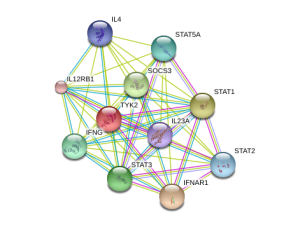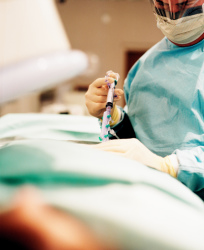 A possible new target for breast cancer therapy comes from the discovery that the Tyk2 protein helps suppress the growth and metastasis of breast tumors, as reported in Journal of Interferon & Cytokine Research, a peer-reviewed journal published by Mary Ann Liebert, Inc.
A possible new target for breast cancer therapy comes from the discovery that the Tyk2 protein helps suppress the growth and metastasis of breast tumors, as reported in Journal of Interferon & Cytokine Research, a peer-reviewed journal published by Mary Ann Liebert, Inc.
Qifang Zhang and Andrew Larner, Virginia Commonwealth University (Richmond, VA), and colleagues from VCU, Temple University School of Medicine (Philadelphia, PA), Jagiellonian University (Krakow, Poland), and Miyazaki University (Japan), present data demonstrating that mice lacking Tyk2 tyrosine kinase that are injected with breast cancer cells exhibit enhanced breast tumor growth and metastasis compared to mice with normal Tyk2 protein expression.


